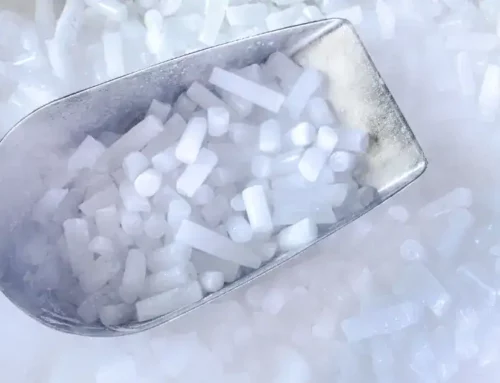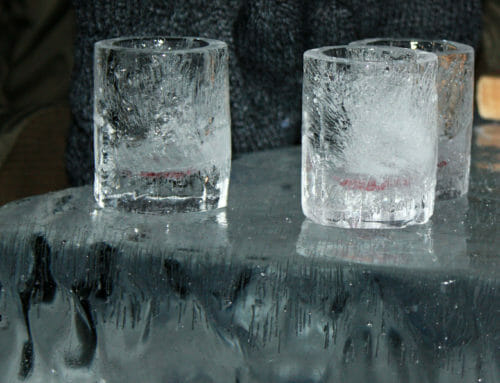Dry ice is far more than a Halloween prop. From keeping lifesaving medicine cold to cleaning giant industrial machines, this solid form of carbon dioxide plays a crucial role across a wide range of industries.
In this post, we’ll explore how businesses use dry ice every day, why industries rely on it, and the lesser-known ways this chilly substance helps modern operations run more smoothly.
What Makes Dry Ice So Special?
Dry ice is very different from the ice in your freezer:
- Solid carbon dioxide (CO₂) — not frozen water.
- Extremely cold: about –109.3°F (–78.5°C).
- Sublimates instead of melts: it transitions directly from a solid to a gas, leaving no liquid behind.
- No residue, non-toxic, and highly portable — excellent for cold chain work where traditional refrigeration isn’t practical.
These unique traits make it incredibly valuable in commercial and industrial environments.
1. Ultra-Cold Medical & Pharmaceutical Needs
Dry ice is essential to the healthcare industry.
Key Medical Uses
- Vaccine logistics: Many vaccines — including some COVID-19 vaccines — must be kept at ultra-cold temperatures during shipping. Dry ice makes that possible without the need for expensive ultra-cold freezers.
- Biological samples: Tissue, blood, and other specimens are preserved for research or testing.
- Organ transport: Time-critical organ shipments rely on dry ice for sustained cooling.
- Cryotherapy: Dermatologists use dry ice for procedures like wart removal.
Why It Matters
Without dry ice, maintaining the cold chain for these products would require more costly or less reliable refrigeration methods.
2. Food Industry
The food sector is one of the largest consumers of dry ice, using it throughout production, storage, and distribution.
Critical Food Uses
- Preserving perishables: Dry ice keeps meats, seafood, ice cream, and produce frozen during transportation and ensures that meals arrive fresh during the “last mile” of delivery.
- Flash freezing: Rapid cooling prevents ice crystal damage and preserves texture and flavor.
- Food safety and sanitation: Dry-ice cleaning can help remove mold or bacterial buildup in food-prep areas.
- Display and retail: Supermarkets and commercial kitchens use dry ice to keep display items cold without moisture.
3. Shipping & Logistics
In global shipping, dry ice keeps temperature-sensitive products within safe temperature ranges.
Where It’s Used
- International freight: Perishable goods crossing borders rely on dry ice for consistent cold.
- Pharma shipping: Medicines and biological materials travel safely across long distances.
- Emergency response: After natural disasters or power outages, dry ice helps preserve food and medicine.
Benefits
- Portable cold without mechanical equipment
- Works in remote areas or during transport
- Reduces risk of product spoilage
4. Industrial Cleaning & Maintenance with Dry Ice Blasting
One of the most powerful industrial uses of dry ice is in dry ice blasting — a cleaning method that revitalizes equipment without harsh chemicals or water.
How Dry Ice Blasting Works
- Dry ice pellets are accelerated with compressed air toward a surface.
- On impact, they cause micro-thermal shock that loosens contaminants.
- The pellets then sublimate, leaving no secondary waste.
Top Industrial Applications
- Food processing equipment cleaning
- Paint, oil, and mold removal
- Production line decontamination
- Historic restoration and fire damage cleanup
Why It’s Better
Unlike water blasting or chemical solvents, dry ice blasting eliminates residue and water damage, reduces downtime, and avoids hazardous chemicals.
5. Entertainment, Events & Special Effects
When dry ice hits warm water, it generates thick, low-lying fog for:
- Stage shows and concerts
- Halloween attractions
- Weddings and themed events
- Photography and film effects
The fog sinks to the ground, creating an otherworldly atmosphere. And because dry ice doesn’t melt into water, there’s no mess afterward.
6. Pest Control & Storage Protection
How It Works
- As dry ice sublimates, it releases carbon dioxide gas.
- CO₂ displaces oxygen in enclosed spaces, making the environment inhospitable for insects.
Practical Uses
- Reducing insect activity in grain storage
- Repelling rodents in burrows
- Pest management without toxic chemicals
This method is especially useful in food storage areas where chemical pesticides aren’t allowed.
7. Emergency Cooling & Power Outages
Dry ice can be a lifesaver when refrigeration systems fail due to storms, power outages, or equipment failures.
Emergency Uses
- Backup cooling for freezers — can keep frozen food safe for days.
- Protecting inventory at supermarkets and restaurants
- Short-term cold preservation for labs and pharmacies
Dry ice leaves no liquid mess and lasts longer than water ice.
8. Specialized Industrial Uses You Might Not Expect
Dry ice occupies several technical or niche applications as well:
Engineering & Fabrication
- Shrink fitting: Cooling components to temporarily shrink them for precise assembly.
- Construction: Freezing soil or groundwater to stabilize the ground before excavation.
- Pipe repair: Dry-ice freezing can temporarily block water flow for maintenance without shutting off the mains.
Chemical Processing
- Cold traps and condensers: In labs and manufacturing, to control reactions or condense vapors.
Safety First: Handling Dry Ice
Dry ice must be used safely:
- Never touch with bare skin — extreme cold causes frostbite.
- Use proper insulation and ventilation — CO₂ gas can accumulate in enclosed areas.
- Transport responsibly — especially when shipping or storing in vehicles.
Final Takeaway
Dry ice isn’t just a party trick — it’s a multifaceted industrial powerhouse:
- Critical for medical and food supply chains
- Essential for shipping and emergency cooling
- A green cleaning solution for heavy industry
- A dramatic fog maker in entertainment
- A tool in engineering, pest control, and more
From the freezer room to the factory floor, dry ice continues to cool — literally — some of the most vital systems in business today.
FAQs About Dry Ice
What is dry ice, and how is it different from regular ice?
Dry ice is the solid form of carbon dioxide (CO₂) that sublimates directly from solid to gas without melting into liquid water. It stays much colder than regular ice and leaves no residue.
Why do medical facilities use dry ice?
Medical professionals use dry ice to preserve biological samples, vaccines, organs, and temperature-sensitive medical supplies. Its ultra-cold temperature makes it ideal for storage and transport.
How is dry ice used in the food industry?
Dry ice is used in restaurants and food storage facilities to keep food fresh, prevent bacteria and mold growth, and maintain cold temperatures during storage and display.
Can dry ice be used to ship perishable goods?
Yes. Dry ice helps keep perishable items like seafood, frozen meals, and other temperature-sensitive products cold during shipping, ensuring they arrive fresh.
What is dry ice blasting, and what does it do?
Dry ice blasting is a cleaning method that uses accelerated dry ice pellets to remove contaminants from industrial equipment. It’s non-abrasive, eco-friendly, and leaves no secondary waste.
Is dry ice safe to handle?
Dry ice must be handled with protective gloves and proper ventilation because its extremely low temperature can cause frostbite, and the CO₂ gas it releases can build up in enclosed spaces if not ventilated.
Can dry ice be used during power outages?
Yes — dry ice can keep food and medical products cold for extended periods when conventional refrigeration isn’t available.
What forms of dry ice are available for commercial use?
Dry ice is typically available in blocks, slabs, pellets, or chips — each suited for specific applications like shipping, blasting, or long-term cooling.







We need dry ice in Deoria
Pin ..274001